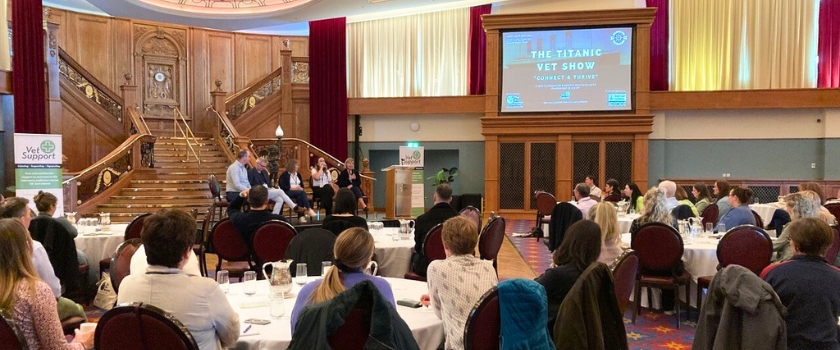-
-
- Council Members
- Role of Council Members
- Council meetings
- Council elections
- Previous election results
- Dr Louise Allum
- Dr Sam Bescoby
- Dr Andrew Clemence
- Dr Tshidi Gardiner
- Dr Reginald Godwin
- Paddy Gordon
- Dr Danielle Greenberg
- Dr Gerard Henry
- Dr Richard Hillman
- Dr Benjamin Kennedy
- Dr Tom Lonsdale
- Dr Darren Partridge
- Martin Peaty
- Alison Price
- Dr Peter Robinson
- Dr Jennifer Simmons
- Dr Sadie Spencer
- Dr Mary Thomas
- William Wilkinson
- Dr Lara Wilson
- Past-Presidents
-
-
-
-
-
- About extra-mural studies (EMS)
- EMS requirements
- Information for vet students
- Information for EMS providers
- Information for vet schools
- Temporary EMS requirements
- Practice by students - regulations
- Health and safety on EMS placements
- EMS contacts and further guidance
- Extra-mural studies fit for the future
-
-
- Code of Professional Conduct for Veterinary Surgeons
- Code of Professional Conduct for Veterinary Nurses
- Contact the Advice Team
- XL Bully dog ban
- 'Under care' - guidance
- Advice on Schedule 3
- Controlled Drugs Guidance – A to Z
- Dealing with Difficult Situations webinar recordings
- FAQs – Common medicines pitfalls
- FAQs – Routine veterinary practice and clinical veterinary research
- FAQs – Advertising of practice names
- GDPR – RCVS information and Q&As
Takeaways from the Titanic Vet Show

On Friday 24 May and Saturday 25 May 2024, Dr Kate Richards, Chair of our Mind Matters Initiative (MMI), and Dr Sue Paterson, RCVS President, attended the Titanic Vet Show (a non-clinical CPD and mental health charity fundraiser), where they spoke about the work of MMI and 'strategic approaches to supporting mental health within the veterinary team'. In this blog post, Kate shares her reflections from the day.
Two days at the Titanic Vet Show in Belfast at the weekend was an uplifting experience with lots of opportunities to learn, connect and collaborate. I have returned home with practical tips and techniques, knowledge to reflect upon as well as connections to follow up.
The past few years have presented a number of challenges to society such as the Covid pandemic, Brexit and the cost of living crisis. The veterinary community has been impacted by these broader societal challenges in addition to issues specifically related to our professions such as workforce shortages, XL Bullies, the Competition and Markets Authority report, medicine shortages in Northern Ireland and incursion of diseases such as avian influenza, Bluetongue and Brucella canis. Despite all these challenges there are strategic approaches which can help support mental health and build resilience.
At the conference, I gave a presentation which included two case studies. RCVS President Dr Sue Paterson took the audience through the first case study of a young Clumber Spaniel presenting with severe otitis externa, who was unresponsive to therapy, and whose owners were unable to afford further treatment. I then presented the second case of a four-year-old pregnant XL Bully whose last two litters had been delivered by caesarian. Both cases sparked discussions about moral injury where the vet might feel they were not able to do what they believed was the right thing and so felt frustrated, angry, guilty and powerless. Strategic approaches to support vets included ethical conversations with the team in deciding how to proceed with a case for better decisions, contextualised care to facilitate a partnership between the owner and vet ensuring the best outcome for the patient, establishing regular Schwartz rounds, and the development of practice policies to provide practitioners with a working framework.
Incivility in the workplace is an increasing issue and research from the medical profession demonstrates that incivility, whether verbal or non-verbal, can negatively impact patient outcomes. In addition, these behaviours can adversely impact mental health and wellbeing and team functioning dynamics. Civil work environments matter because they reduce errors, reduce stress and foster excellence. You can find out more about why civility matters on the Civility Saves Lives website.
The mental health and wellbeing theme was woven throughout the two days of the show, as it is inextricably linked to healthy, productive and empowered veterinary professionals.
The Mind Matters Initiative has a number of resources including a guide to enhancing wellbeing in the workplace, a neurodiversity resource hub and collection of webinars. The RCVS Academy, available to all RCVS registrants, provides free CPD on a broad range of topics such as informed consent, complaint handling and unconscious bias.
What remains for me, is to record and reflect on two days of brilliant talks and debate, practicing some deep belly breathing and remembering that self care is one pillar of support alongside my knowledge, experience and network of connections.
Published on 29 May 2024